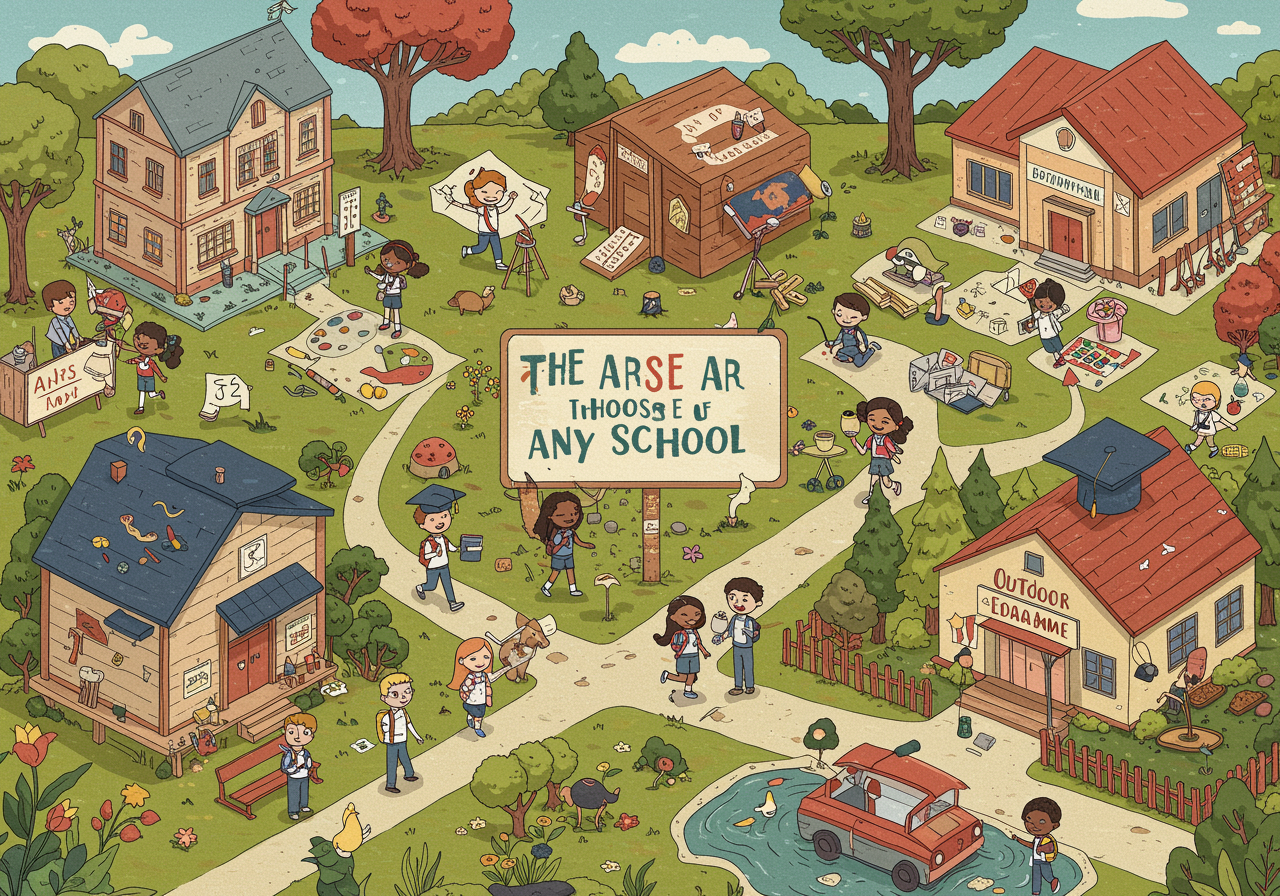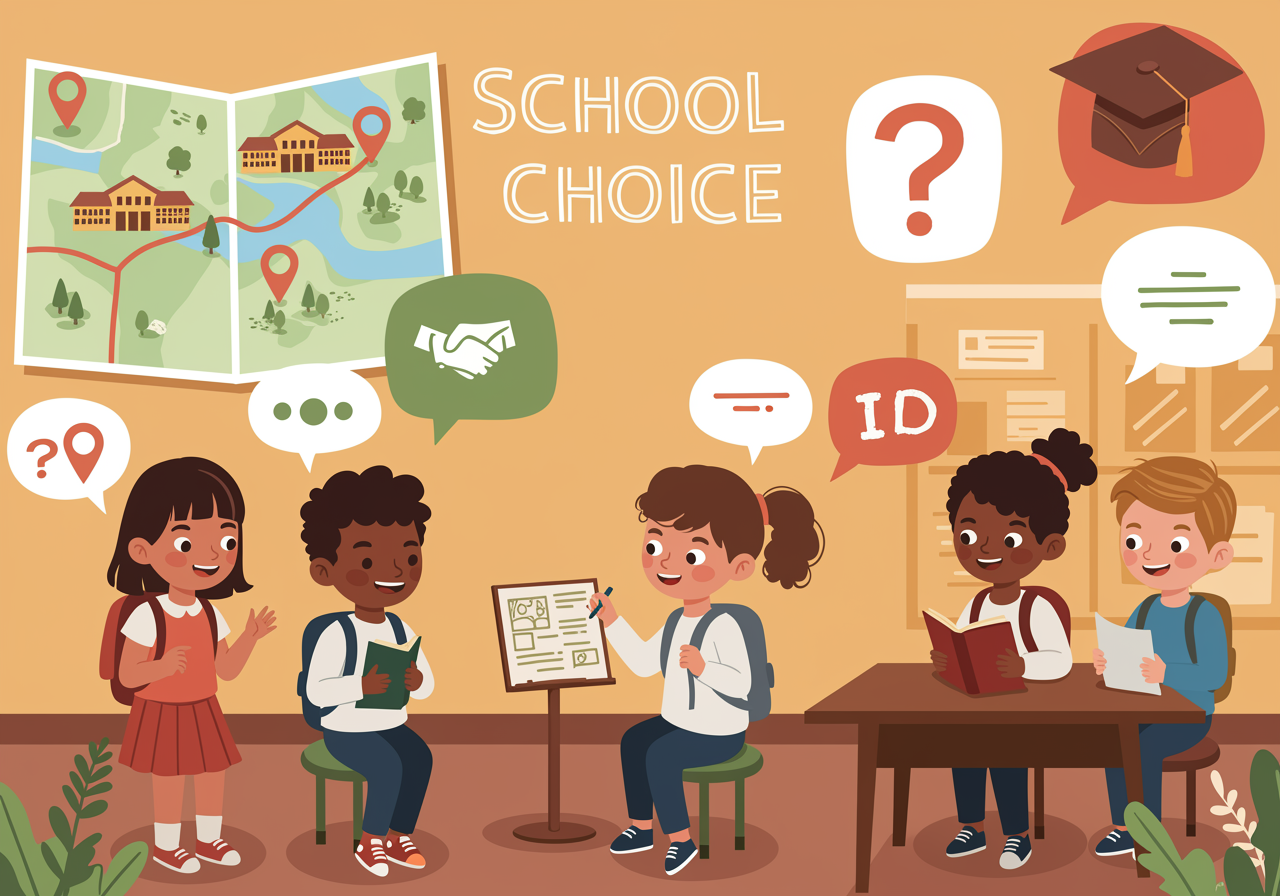School Shopping: What If You Could Pick Any School, Anywhere?
Exploring the wild world of unlimited school choice and what it might mean for everyone
What would happen if choosing a school was like picking your favorite restaurant – with no limits on location or availability?
Overview
Imagine if your teen could attend any school in the world – the arts magnet across town, the tech academy in another state, or even that amazing outdoor education program you saw on social media. This thought experiment opens up big questions about fairness, opportunity, and how we think about education. It’s like asking ‘What if everyone could eat at any restaurant for free?’ – sounds awesome, but what would really happen? This conversation helps families explore complex ideas about choice, access, and community in ways that connect to your teen’s everyday experiences with decision-making and fairness.

Understand in 30 Seconds
Get up to speed quickly
-
- The Big Idea: School choice means students aren’t limited to their neighborhood school – they can pick any school they want, anywhere.
-
- Why It Matters: This could mean amazing opportunities for some kids, but it might also create new challenges for schools and communities.
-
- The Trade-offs: More choices often sound great, but they can also lead to unexpected problems like crowded popular schools and empty struggling ones.
- Real Impact: Some places already try versions of this – and the results teach us a lot about how choice works in the real world.
Real Life Scenario
Situations you can relate to

Role Play
Spark a conversation with “what if” scenarios
- Role play: Take turns being the principal dealing with housing questions, transportation issues, and managing a suddenly huge student body. How would you handle it?
What if you could design your perfect school by cherry-picking the best parts from schools around the world?
- Role play: Create your dream school together, then discuss the practical challenges: Who would pay for it? How would students get there? What happens to other schools?
What if you lived in a small town and all the best students suddenly left for schools in big cities?
- Role play: Role-play as community members discussing how to keep your local school strong and attractive when competing with schools everywhere.
FAQs
Frequently asked questions people want to know
How would students even get to schools far away? Great question! Transportation, housing, and logistics would be huge challenges. Some families might need to move, others might do online learning, or new transportation systems might develop.
Would this make education more fair or less fair? It’s complicated! It might give more opportunities to some students, but it could also advantage families with more resources to travel or relocate. The fairness depends on how it’s set up.
Examples in the Wild
See how this works day to day
-
- Arizona’s open enrollment allows students to attend any public school in the state, leading to both success stories and transportation challenges (Arizona Department of Education)
-
- New Orleans rebuilt its entire school system after Hurricane Katrina with mostly charter schools that students can choose from (Education Week)
-
- Finland allows school choice but most families still choose their neighborhood school, showing cultural differences matter (Finnish National Agency for Education)
- Washington D.C.’s school lottery system lets students apply to any public school, creating both opportunities and complexity for families (DC Public Schools)
In Summary
What you should know before you start
-
- Unlimited school choice could create amazing opportunities but also new challenges like overcrowding and transportation issues
-
- Popular schools might become impossibly crowded while others struggle to keep students and funding
-
- Fairness is complicated – more choice might help some families but could advantage those with more resources
- Real-world examples show mixed results, with both success stories and unintended consequences
Pro-tip for Parents
You got this!

Keep an Eye Out For
Find these examples in everyday life
-
- News stories about school choice policies in your state or district – these make great conversation starters
-
- When your teen complains about their current school – ask them what their ideal school would look like and how they’d make it accessible to everyone
- College application season, when teens are actually experiencing a form of school choice with different acceptance rates and requirements
Explore Beyond
Look up these related research topics
-
- How do other countries handle school choice and what can we learn from them?
-
- What role should technology play in making great education accessible to everyone?
- How do we balance individual choice with community needs in other areas of life?